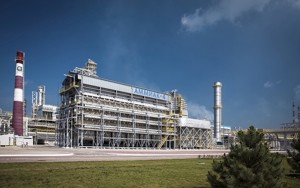Topsoe supports Federated Co-Operatives Ltd. in renewable diesel production
Topsoe, a global leader in carbon emission reduction technologies, has been selected by Federated Co-operatives Limited (FCL) to officially support the production of renewable diesel in Regina, Saskatchewan, Canada. FCL has chosen Topsoe’s HydroFlex process to produce low-carbon renewable diesel.
Henrik Rasmussen, Managing Director, the Americas, Topsoe, said:
“We are proud to have been chosen as the official technology vendor for FCL’s new venture. Driven by our commitment to a sustainable future, we are focused on helping organizations like FCL reach their low-carbon economy goals and objectives.”
The FCL renewable diesel plant, once fully operational, has the potential to produce 15,000 barrels per day. The facility will be part of a larger Integrated Agriculture Complex, which also includes a canola crushing plant. FCL expects to be producing renewable diesel in 2027.
Gil Le Dressay, Vice President, Manufacturing, FCL, said:
“The production of renewable diesel is an important step in our transition to the low-carbon economy. Topsoe is a global leader and we are extremely pleased to work with their team, and to rely on their expertise, to deliver on our goals.”
FCL’s current refinery in Regina produces traditional petroleum products. Combining renewable fuels with those products FCL already manufactures will create a sustainable seed-to-tank solution for fuel production in Western Canada.
What is renewable diesel
Renewable diesel is a low-carbon fuel made from renewable sources and is chemically identical to regular petroleum diesel. This means, it produces less greenhouse gas emissions, while performing the same as regular petroleum diesel and can be used without modification to engines or infrastructure.
The feedstocks used to make Renewable diesel include vegetable oils such as Canola and Soybean oil, as well as waste or recycled animal fats and cooking oils. The resultant CO2 produced by the combustion of renewable diesel is essentially recycled back to grow the feedstocks. Therefore, renewable diesel substantially lowers the net amount of CO2 emitted to the atmosphere to help curb the harmful effects of climate change.







Comments